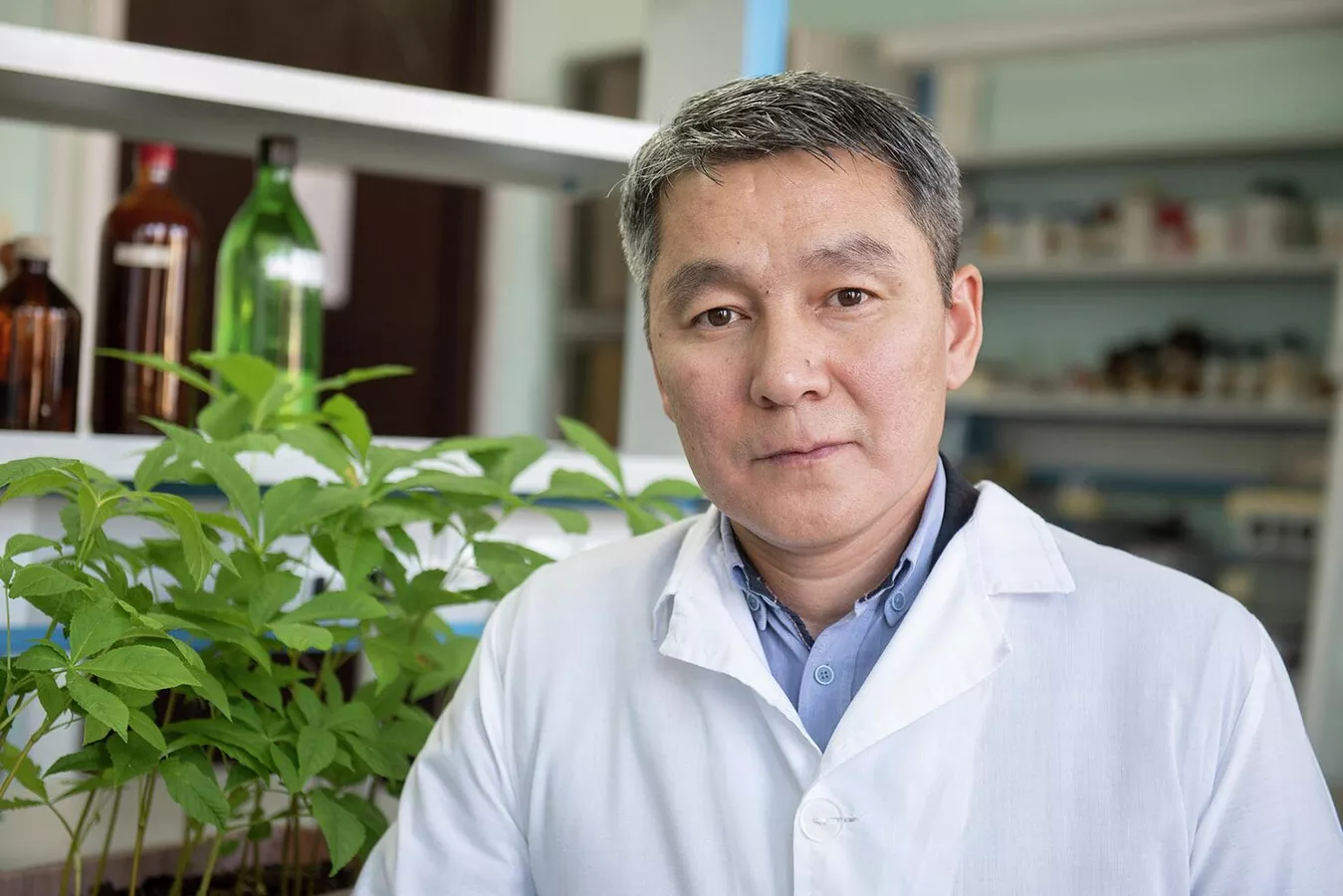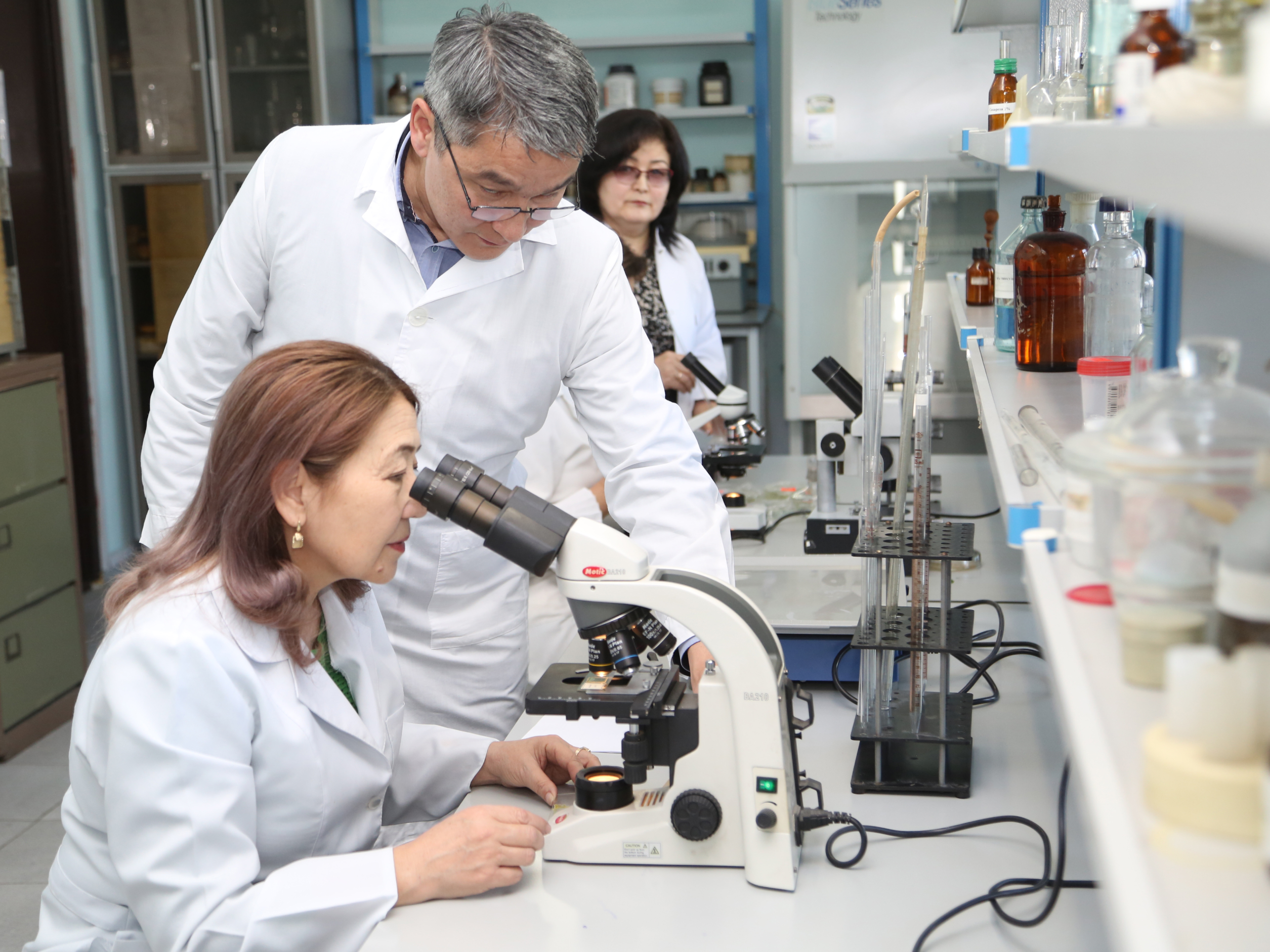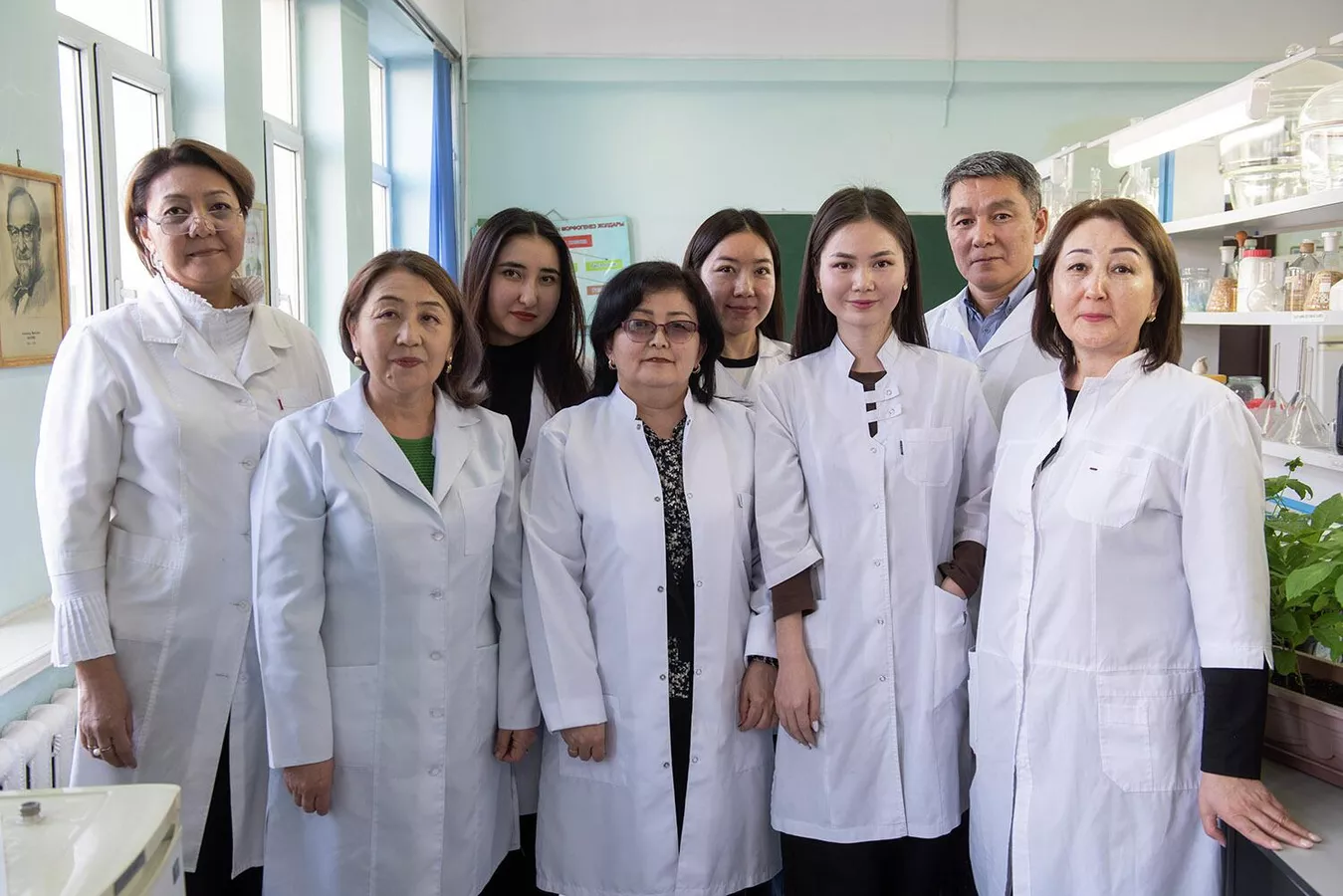-
18 january, 2024
![Sputnik Kazakhstan prepared a report on the work of QYZPU scientists]()
Scientists of the Kazakh National Women's Teacher Training University intend to improve the ecology and improve the health of residents of Kazakhstan's largest metropolis, Sputnik Kazakhstan correspondent reports. Already this spring, they will begin practical implementation of their project by planting trees that actively accumulate heavy metals, thus purifying the air.
According to Askar Kalekeshov, head of the environmental project developed on the basis of the Kazakh National Women's Teacher Training University, according to various estimates, Almaty is among the top 10 or even top 5 most polluted cities in the world.
That is why specialists from different fields of science have been working for the last 10 years to solve the issue of air purification in Kazakhstan's largest megacity, as well as trying to find medicines that can rid the population of lung and respiratory diseases. Geneticists at the Women's Teacher Training University in Almaty are no exception.
"What makes this question relevant? At this time, the population, almost every third person, is sick with respiratory diseases and every fourth person is asthmatic. And we want to solve this issue when implementing this project. For our research we have taken such medicinal plants, which are little studied. We have been researching these plants for almost five years," says Askar Keleshekov.

Project Manager, Askar Kalekeshov
The main objects of research of Women's Teacher Training University scientists were Asian burdock and Altai honeysuckle. For more in-depth research into the therapeutic properties of the latter, this year the geneticists want to organise a long business trip to Eastern Kazakhstan. There they intend to collect the plant samples necessary for further work.
"The increased interest in medicinal substances of plant origin is explained by the fact that natural biologically active substances are harmless, low-toxic. And, in this regard, we want to test medicinal plants for healing, for the recovery of the population of Almaty," explains Kalekeshov.

Natural filters: special trees identified by scientists. However, the main objective of the project remains to improve the environmental situation in Almaty, especially in the most polluted areas of the country's largest metropolis.
Over the past few years, they have studied dozens of plants that can effectively filter the air and significantly improve its quality. They finally settled on chestnuts and juniper.
"As part of a project to improve the ecology of Almaty, we conducted research on heavy metal accumulator plants. Chestnut and juniper turned out to be the most suitable. This year we plan to continue research at the Koldy biostation at our university. And in 2025, we will begin full-fledged implementation of the project in Almaty, where we will start planting green islands in the most polluted areas," project leader Askar Kalekeshov said.

At the first stage, scientists plan to plant about 1,000 trees a year in the city. When a sufficient amount of planting material is grown, the scientists intend to increase the planting of green islands - accumulators of heavy metals - up to 10-15 thousand trees a year. The university geneticists are confident that their initiative will significantly improve air quality in Almaty and make life and breathing easier for city dwellers.
Share:
-
About Us
- Rector’s Blog
- University activities
- History
- Notable Alumni
- Structure
- Corporate Governance
- Top-management
- Audit Service
- Compliance Service
- Jobs
- Academic Council
- Development Program
- External Assessment
- Quality management system
- Mission
- Sustainable development
- Infrastructure
- Media
- Normative legal documents
- Aqtumar museum
- Admission
-
Education
- Educational programs
-
Professors
- Institute of Pedagogy and Psychology
-
Institute of Philology
- Department of Theory and Methodology of the Kazakh Language
- Department of Kazakh Literature
- Department of The Russian Language and Literature
- Department of Teaching Methods of Foreign Language
- The Department of Foreign Language Teaching Methodology and Intercultural Communication
- Department of practical foreign language
- Institute of Physics, Mathematics and Computing
- Institute of Natural Sciences
-
Institutes
- Institute of Natural Sciences
- Institute of Pedagogy and Psychology
- Institute of Social Sciences, Humanities and Art
- Institute of Physics, Mathematics and Computing
-
Institute of Philology
- Deprtament of Professional Foreign Language Training
- Department of «Theory and Methodology of Kazakh Linguistics»
- Department of «The Russian Language and Literature»
- Department of «Kazakh Literature»
- Department of practical foreign language
- The Department of Foreign Language Teaching Methodology and Intercultural Communication
- Institute leadership
- College
- Educational and methodical association
- Center for Pedagogical Excellence
- Student Assistance Center
- Coordination Council
- Department of Practice and Career
- Non-formal Education Center
- Center for Women's Leadership and Entrepreneurship
- Center for the Development of Inclusive and Special Education
-
Science
- International Cooperation
- For Students
- e-University
-
-
About Us
- Rector’s Blog
- University activities
- History
- Notable Alumni
- Structure
- Corporate Governance
- Top-management
- Audit Service
- Compliance Service
- Jobs
- Academic Council
- Development Program
- External Assessment
- Quality management system
- Mission
- Sustainable development
- Infrastructure
- Media
- Normative legal documents
- Aqtumar museum
-
About Us
-
-
Education
- Educational programs
-
Professors
- Institute of Pedagogy and Psychology
-
Institute of Philology
- Department of Theory and Methodology of the Kazakh Language
- Department of Kazakh Literature
- Department of The Russian Language and Literature
- Department of Teaching Methods of Foreign Language
- The Department of Foreign Language Teaching Methodology and Intercultural Communication
- Department of practical foreign language
- Institute of Physics, Mathematics and Computing
- Institute of Natural Sciences
-
Institutes
- Institute of Natural Sciences
- Institute of Pedagogy and Psychology
- Institute of Social Sciences, Humanities and Art
- Institute of Physics, Mathematics and Computing
-
Institute of Philology
- Deprtament of Professional Foreign Language Training
- Department of «Theory and Methodology of Kazakh Linguistics»
- Department of «The Russian Language and Literature»
- Department of «Kazakh Literature»
- Department of practical foreign language
- The Department of Foreign Language Teaching Methodology and Intercultural Communication
- Institute leadership
- College
- Educational and methodical association
- Center for Pedagogical Excellence
- Student Assistance Center
- Coordination Council
- Department of Practice and Career
- Non-formal Education Center
- Center for Women's Leadership and Entrepreneurship
- Center for the Development of Inclusive and Special Education
-
Education






